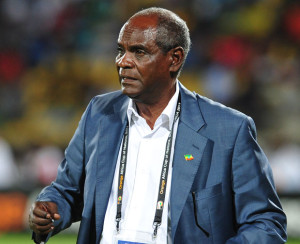Ethiopia’s premature elimination from the tournament, despite being considered as potential outsiders, likely contributed to the dissatisfaction among football leaders. The failure to progress beyond the group stage was evidently not well-received by those in charge.
Despite this setback, it’s worth noting Sewnet Bishaw’s significant achievements during his tenure. Under his guidance, Ethiopia qualified for the final phase of the African Cup of Nations in 2013, marking their return after a 31-year absence. Additionally, Bishaw came close to securing qualification for the 2014 World Cup in Brazil, with the team narrowly missing out due to the formidable opposition of Nigeria in the playoffs.
This turn of events serves as a reminder of the challenging and often unpredictable nature of the coaching profession in football. Despite past successes, coaches can find themselves under intense scrutiny and subject to swift changes based on performance.











